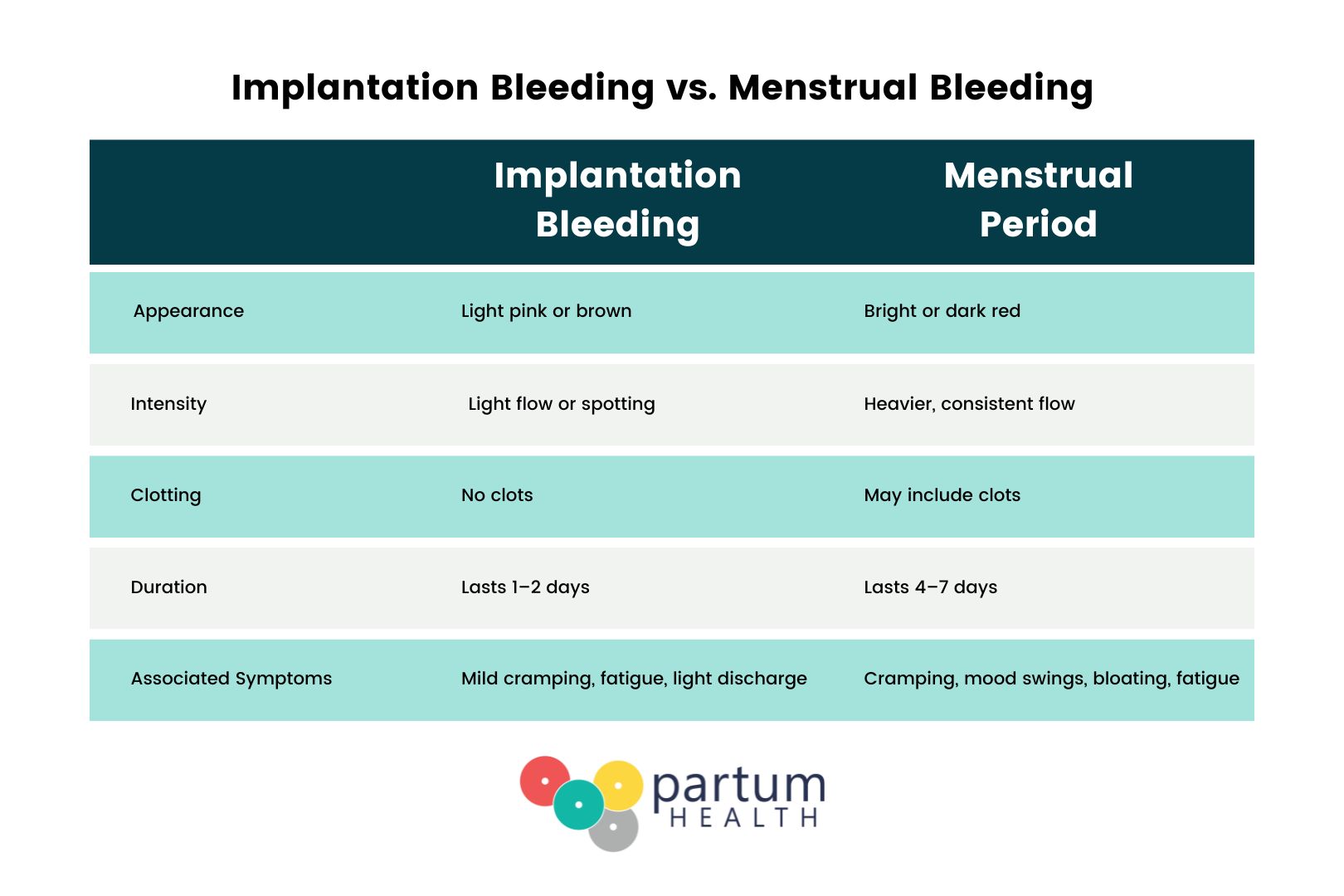Weird pregnancy symptoms: 9 unexpected signs you might be pregnant

Medically reviewed by Dr. Melissa Dennis, MD, MHA, FACOG
You probably already know some of the more common signs of early pregnancy like nausea, a missed period, or sore breasts. But for some people, the very first clues are a little… weirder. A sudden metallic taste in your mouth? Superhuman smell? Strange spotting that isn’t quite your period? These early signals often appear before a pregnancy test even turns positive and they all are attributed to the rapid hormonal shifts happening in the first few days and weeks after conception.
“Pregnancy symptoms can occur in almost a quarter of newly pregnant people before they ever miss a period. The symptoms can be strange and subtle, so if in doubt, check a pregnancy test.” - Dr. Melissa Dennis, Partum Health Chief Medical Officer
Below, we’ll walk you through what’s normal, what’s unexpected, and how to tell the difference between implantation bleeding, your period, and ovulation spotting.
List of weird pregnancy symptoms
Once an egg is fertilized, your body immediately starts changing–even within the first 72 hours of pregnancy. Rising progesterone levels and the early production of hCG (the hormone that pregnancy tests detect) can trigger symptoms that feel sudden, strange, or even overwhelming.
Here are a few weird pregnancy symptoms to look for:
- Dysgeusia: Dysgeusia is medical term for having a sudden metallic taste in your mouth. It is commonly accepted that sense of taste changes during pregnancy, and though there is inconclusive evidence as to why, it is often attributed to the increase in sex hormones impacting taste buds.
- “Pregnancy nose”: Rising estrogen during early pregnancy can intensify your sense of smell, making once-neutral scents feel overpowering or even nauseating.
- Pregnancy discharge: Increased vaginal discharge, thin, white, and odorless, is common due to rising progesterone. It helps protect the uterus from infection and may appear before you miss a period.
- Fatigue: You might feel a sudden decrease in energy, even if you’re sleeping well. Your body is working hard behind the scenes to support implantation and early development.
- Emotional changes: Mood swings in early pregnancy can feel extreme, and that’s not in your head! Your brain chemistry is responding to rising hormones like progesterone and hCG.
- Spotting or cramping: Light spotting or mild cramps around a week after ovulation could be a sign of implantation bleeding.
- Bloating: Hormones can slow digestion early on, leading to noticeable bloating or decrease in appetite.
These symptoms can feel obscure or unexpected but they often appear before the more obvious signs of early pregnancy.
When to take a pregnancy test
If you’ve noticed any of these unusual symptoms and suspect you might be pregnant, your next step is likely a pregnancy test. But how soon will a pregnancy test read positive?
Most home tests detect hCG levels in urine, and those levels typically start to rise 8-10 days after ovulation. The most sensitive tests may detect a pregnancy a few days before your missed period, but false negatives are common if you test too early. For the most reliable result, test on the first day of your missed period, and use your first morning urine for the highest concentration of hCG.
Bleeding & early pregnancy symptoms
Light bleeding in early pregnancy can be confusing and even scary. But not all bleeding means something’s wrong; in fact, implantation bleeding is one of the earliest signs that you might be pregnant. We’ve given an overview of signs and symptoms below but always check with your provider if you’re bleeding, in pain, or simply unsure. Bleeding can be harmless, or a sign of a more serious complication.
What Is Implantation Bleeding?
Implantation bleeding occurs when a fertilized egg attaches to the lining of the uterus, usually around 6-12 days after ovulation. It’s caused by small blood vessels breaking as the embryo burrows into the uterine wall. This bleeding is generally much lighter than a typical period and may be accompanied by implantation cramping which feels like a tugging, pinching, or dull ache in the lower abdomen.
People often ask:
- If I have implantation bleeding, will a pregnancy test be positive?
Not always; hCG levels may not be high enough yet. Wait 1–2 days and test again if your initial result is negative. - What does implantation bleeding look like?
It’s usually light pink or brown, not red, and doesn’t include clots. It may last a few hours to a couple of days. - How long does implantation bleeding last?
Typically 1–2 days, much shorter than a period.
Implantation bleeding vs. period
Telling the difference between implantation bleeding vs. a menstrual period can be tricky, especially if your cycle is irregular. Here’s what to look for:

Some people also experience ovulation bleeding, which is even more subtle and easy to miss. This light spotting, typically pink or red, can occur around the middle of your cycle, usually 14 days before your next period. Ovulation bleeding is often light and short-lived, and usually lasts less than a day and not accompanied by significant symptoms. It's caused by a temporary dip in estrogen just before the LH surge that triggers the release of an egg.
In contrast, implantation bleeding occurs after ovulation, closer to the time your period would normally begin. It usually appears as light pink or brown spotting and may last 1 to 2 days. Some people experience mild cramping or breast tenderness alongside it. Unlike ovulation spotting, implantation bleeding is a sign of potential pregnancy, and you may be able to get a positive pregnancy test within a few days though it’s still often too early at first.
While ovulation bleeding is harmless and doesn’t occur in every cycle, implantation bleeding is more closely tied to early pregnancy and only happens once per conception. Understanding the timing and symptoms of each can help you better interpret your body's signals during your cycle.
Implantation bleeding vs. ovulation bleeding
Some people also confuse implantation bleeding with ovulation bleeding, which can occur around the middle of your cycle (usually 14 days before your period). The key differences:
- Ovulation bleeding is usually a very small amount of pinkish discharge lasting less than a day.
- Implantation bleeding happens after ovulation, closer to when your period would be due.
- Ovulation bleeding may or may not be accompanied by cramps, while implantation cramping is common.
Pregnancy symptoms don’t always follow the textbook. You may feel strange, tired, overly emotional, or just "off", and your body might be trying to tell you something before you even miss a period. From implantation bleeding and pregnancy discharge to a metallic taste or hypersensitive nose, these early signs are real and often tied to rapidly rising progesterone levels and hCG.
If you're experiencing symptoms that feel new, confusing, or unexplained, it might be time to take a pregnancy test–and if it's negative, give it a few days and try again. Every body is different, but early awareness can help you get the care and support you need, right from the beginning.








Related articles

Let us care for you
Treat yourself to a better fertility, pregnancy and postpartum experience.











